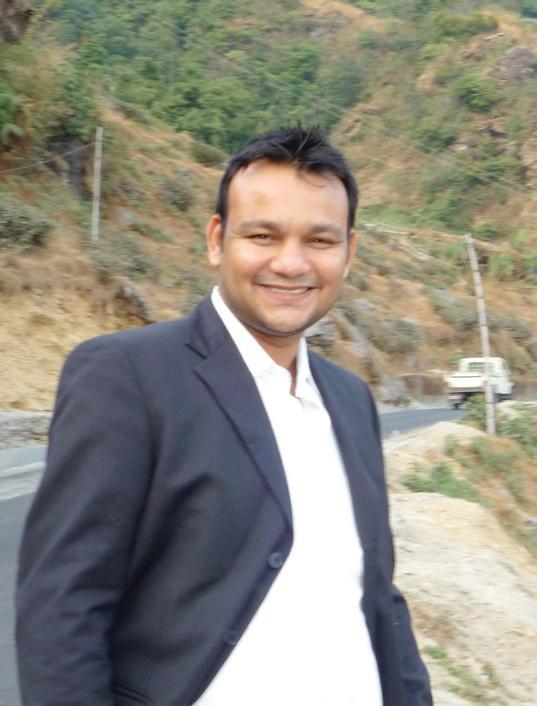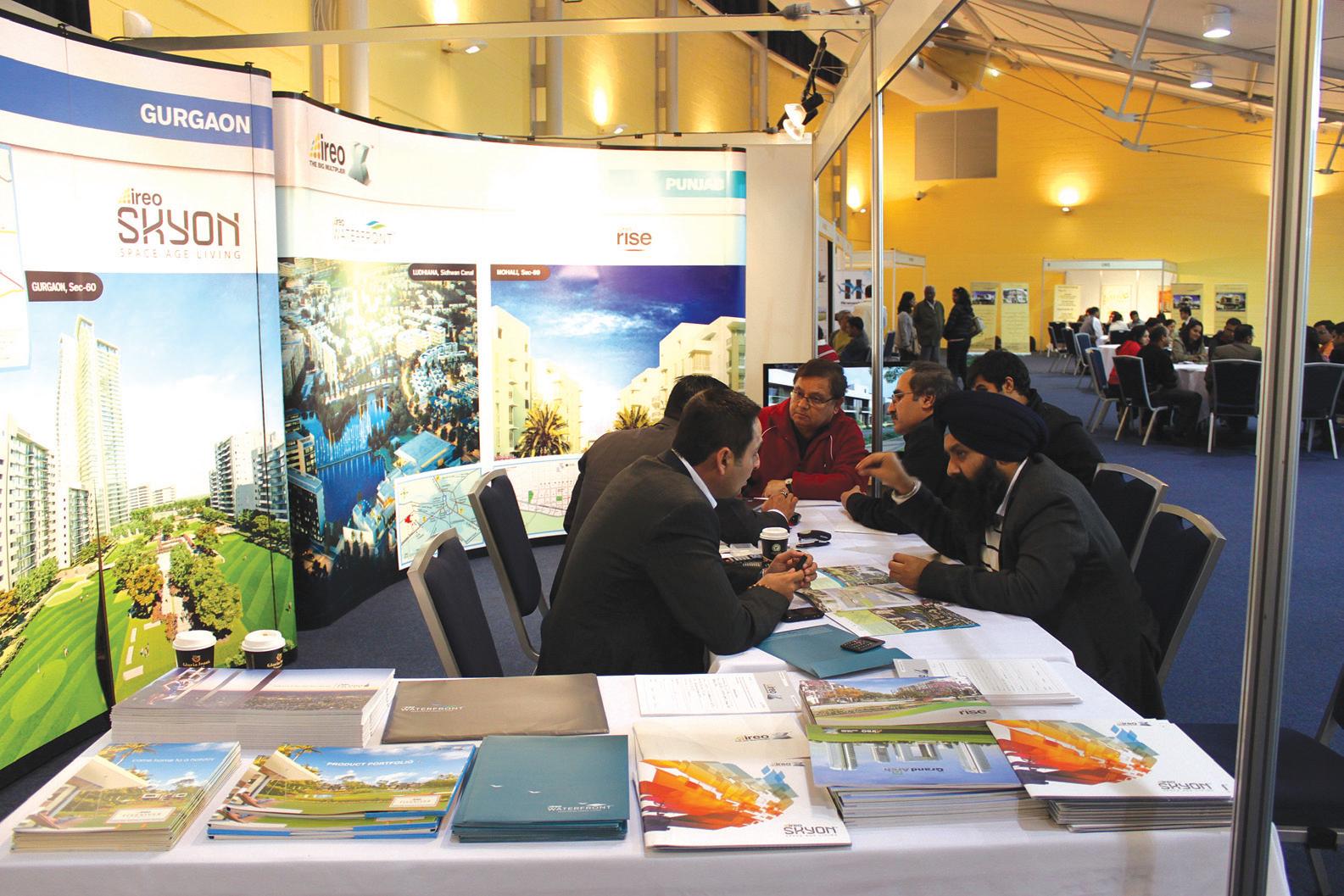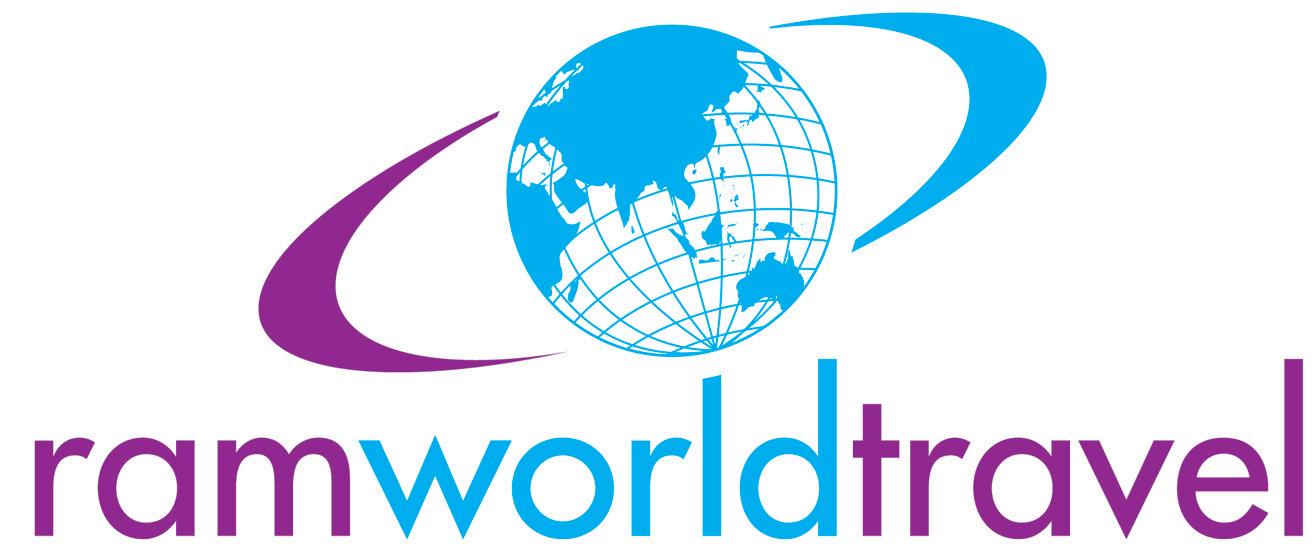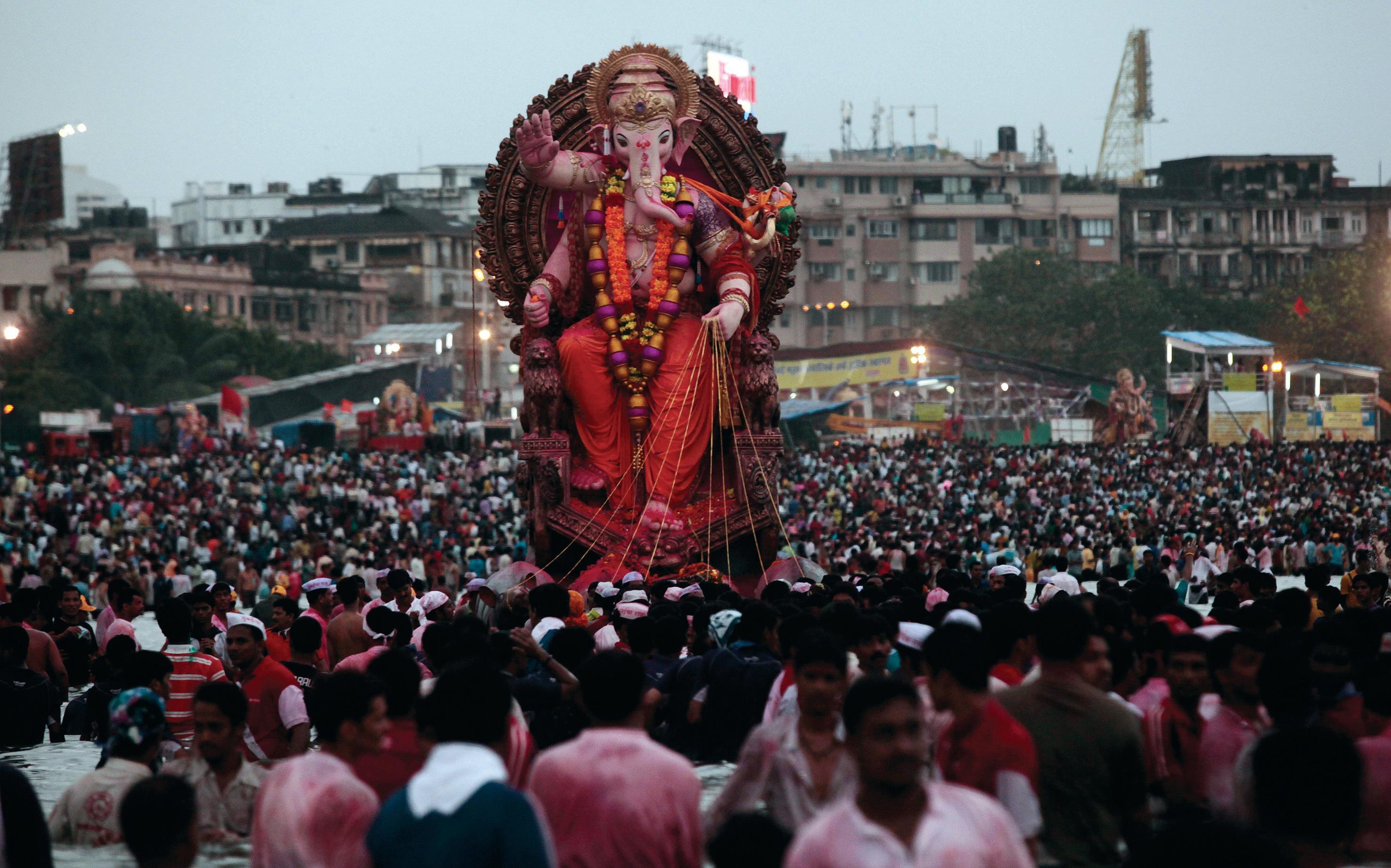
29 minute read
Property investment event offers lucrative options
from 2011-09 Sydney (1)
by Indian Link
BY GAURAV PANDEY

Indian Events, in association with Concept Tree, a leading property consulting company, conducted the largest Indian property event ever in Australia at Sydney Showground, Sydney Olympic Park, on
The objective of the event was to provide a platform for builders from India to showcase their properties and provide potential buyers in Australia with knowledge of the property market in India.
The event, drawing over 400 attendees, was a great success with Indians here showing a keen interest in investing in the highly lucrative property market in India, Vishal Gupta, Director of Concept Tree Consulting said.
Organised close on the heels of a similar, albeit smaller, event in Melbourne, the property show contained presentations of existing and fresh commercial and residential real estate projects from across India, with the presence of major real estate developers and builders such as Jaypee Greens, Ireo, Rustomjee, Unitech, Nirmal Lifesyle, Hiranadani and many more.

Jaypee Greens’ Sport City project which will witness the first ever Formula 1 race in India on October 30 this year, garnered a particularly impressive response.
“The property show was the most informative I have attended in Australia. It is great to see such opportunities to buy properties in India and to help us stay connected to our land of origin,” said Shubham Sharma, one of the participants. Visitors not only got an opportunity to seek advice on property but also related aspects such as finance, documentation and legal requirements. The property show and subsequent related events, has helped in creating an understanding about property cycles and growth structure in the Indian property market.
“The Indian property market has been identified as one of the best performing property markets in the world,” said Mr. Gupta while pointing out that an advantage for Indians based in a country such as Australia is that they can invest in good properties back home for a fraction of the cost they would pay for a similar property here.
In the evening, there was a special dinner organised for investors to meet the visiting builders from India and better understand the property market in India.
NRI buyers typically look to buy property in India for investment or as their second home, and fairs such as this one provide an opportunity for buyers to understand the property purchase process in India. “It is very important for an investor sitting so far away to invest in a property by a credible builder,” Mr. Gupta cautioned.
With a rising Australian dollar and sharply increasing interest rates ensuring a handsome return on investment in property in India, more and more buyers are willing to venture into the country’s property segment.
Concept Tree is a leading service provider in the area of Indian property investment. The company not only helps clients find the best investment properties in India, it also helps them secure loans from leading financial institutions and the associated
There are more events planned in the future, with a similar event in Sydney in the first half of 2012. “Concept Tree studies market data, and seeks technical and legal approvals before inviting developers and builders to participate in such events,” Mr Gupta stressed.
Potential investors in property in India, as well as those who have already invested but seek guidance, are encouraged to visit www. indiapropertyevent.com.au, the website for the event.
“We

Pakistan commerce minister to visit India India and Pakistan are set to scale up bilateral trade and business when Pakistan’s Commerce Minister Makhdoom Amin Fahim visits India later this month. It’s being speculated that Islamabad could grant New Delhi the long-overdue Most Favoured Nation (MFN) status.
Fahim’s visit to India is likely to take place from Sep 26-30, said reliable sources. He will hold talks with his Indian counterpart Anand Sharma on the removal of trade barriers and pruning down of a negative list of products that the two countries don’t want to trade in.
Pakistan, sources said, has indicated its willingness to double the number of goods it imports from India, but it’s not clear whether it will go all the way with the MFN status.
Building upon successful talks between their foreign ministers in July, India and Pakistan are now poised to expand their bilateral trade and liberalise the visa regime, especially for businessmen.
Issues relating to liberalisation of the trade regime were discussed last month during the talks between joint secretaries (commerce) of the two countries last month.
Pakistan, in principle, has agreed to move from “positive list” to “negative list” trade regime with India as required under the conventions of the South Asian Free Trade Agreement (SAFTA).
“Pakistan has also recognised that grant of MFN status to India would help in expanding the bilateral trade relations,” Minister of State for Commerce and Industry Jyotiraditya M. Scindia told the Rajya Sabha last month in reply to a question.
Pakistan maintains a “positive list” of 1,945 items which are allowed to be imported from India. Under SAFTA, Pakistan operates a sensitive list (negative list) of 1,169 items.
New Delhi has asked Islamabad to prepare the negative list of items that it does not want to import from India.

The MFN status for India could be a key step in expanding trade ties between the two countries whose relations have been marred by a host of issues, including terrorism and Kashmir.
The MFN status would benefit a range of Indian products, including textiles, cotton, vegetables, coffee, tea and spices and can take bilateral trade up to $10 billion and help cut down on informal trade that is going on between the two countries.
Pakistan, on its part, is expecting India to remove non-tariff barriers that restrict imports from that country.
India-Pakistan trade was estimated to be $1.85 billion in 2009-10. Indian exports accounted for $1.78 billion.
In April-December 2010, bilateral trade is estimated to have gone up to over $3 billion with India’s exports at $1.7 billion.
A study by Delhi-based Indian Council for Research on International Economic Relations estimates that, given reciprocal concessions, bilateral trade between India and Pakistan could go up to $14.3 billion, with India exporting about $11 billion-worth and importing goods worth $3 billion from Pakistan.
Mining baron Janardhana Reddy arrested, jailed
Former Karnataka minister and mining baron Gali Janardhana Reddy and his relative B. Srinivasa Reddy were sent to a jail in Hyderabad after a special court remanded them to 14 days judicial custody in an illegal mining case in Andhra Pradesh.
On September 5, a day of fast paced developments, the Central Bureau of Investigation (CBI) arrested Janardhana
Reddy, a director of Obulapuram Mining Company (OMC) and Srinivasa Reddy, the managing director of OMC, at Bellary in Karnataka and shifted them to Hyderabad amid tight security.
The duo was produced before a CBI court, which remanded them to judicial custody till September 19. They were later shifted to Chanchalguda Central Jail.
The court adjourned to Sep 7 the hearing on the CBI’s petition seeking custody of the accused for 15 days.
Janardhana Reddy’s counsel Raghavachary, during the arguments, alleged that there was a political conspiracy behind the arrest. The counsel also termed the arrest “illegal” as Janardhana Reddy’s name is not included in CBI’s FIR as an accused.
It was also submitted that Janardhana Reddy has nothing to do with the day-to-day functioning of OMC. The judge, however, asked the counsel to file a counter to the CBI’s petition September 7.
The CBI counsel sought the judicial custody of the accused saying they could tamper with the evidence.
Earlier, while being shifted from the CBI office to the court complex, Janardhana Reddy told reporters that he is innocent. “The truth always prevails,” he said.
Janardhana Reddy, a lawmaker in Karnataka, and Srinivasa Reddy were arrested in a case registered against them in 2009 for illegal mining in Andhra Pradesh’s Anantapur district, bordering Karnataka.
“A CBI team from Hyderabad arrested Janaradhana Reddy after raiding his residence and took him to Hyderabad in their vehicle for interrogation in connection with the case registered against his mining company,” a senior police officer of Bellary said.
Hailing from Andhra Pradesh’s Chittoor district, the Reddy brothers made their fortunes in Karnataka’s iron ore rich district of Bellary.
The Reddys, who were small businessmen, became billionaires after entering into mining 10 years ago.
Interestingly, the arrests come at a time when the CBI is probing the alleged illegal assets of MP Y.S. Jaganmohan Reddy, son of late Andhra Pradesh chief minister Y.S. Rajasekhara Reddy. Janardhana Reddy was close to the former chief minister and his son.
Both Andhra’s ruling Congress and opposition Telugu Desam Party hailed Janardhana Reddy’s arrest and demanded probe against Jaganmohan Reddy for his links with mining baron.
However, Jaganmohan Reddy denied any links with former Karnataka minister.
‘Doha round can’t be allowed to collapse’
The Doha round of the World Trade Organisation (WTO) must not be allowed to collapse as it will result in protectionism and hurt global economy and trade, Commerce and Industry Minister Anand Sharma said recently.
“Many skeptics feel that the WTO is at crossroads and that the lack of progress in the Doha round raises questions on the relevance and efficacy of this institution. We do not share this pessimism,” Sharma said at the inaugural of WTO Regional Trade Policy Course 2011, at the Centre for WTO Studies in New Delhi.
The minister said there was disappointment among members due to the delays but the negotiations should not be allowed to collapse.
The so-called Doha round of WTO negotiation, launched in Qatar capital in November 2001, has been deadlocked since 2008.
Sharma said India had taken initiatives to break the deadlock and remained committed for early conclusion of the talks.
Emphasising the need to stay focussed on the developmental dimension of the round, the minister said the terms of the discourse can’t be changed.
He pointed out that developing countries were being called upon to pay an unconscionably high price to conclude the round.
“This certainly was not our expectation and our commitment when we agreed to participate in the round,” he said.
Sharma, who is also the minister of textiles, said a timely conclusion of the Doha round would have strengthened the WTO as a bulwark against protectionism and given a boost to the global economy.
“While a crisis may lead to inward looking and promote protectionism, it will be counterproductive and will delay the recovery and deepen recession. WTO has a crucial role to play in this regard,” he said.
Tainted High Court judge accepts Lok Sabha’s stand Soumitra Sen, who resigned as a judge of the Calcutta High Court, has accepted the stand of the Lok Sabha that he will not be impeached by it and wants to put an end to the “debate,” his lawyer said.
With President Pratibha Patil accepting his resignation, the Lok Sabha Monday dropped impeachment proceedings against Sen.”
“We are accepting the verdict of the MPs of the lower house,” Sen’s lawyer Subhash Bhattacharya said. “We’d like to put an end to the debate,” he added.
Law Minister Salman Khurshid moved the motion to drop impeachment proceedings against Sen in the Lok Sabha. Speaker Meira Kumar put it to vote before the house, which adopted the motion.
Sen was held guilty by the Rajya Sabha last month on charges of misappropriating Rs.33.23 lakh in a 1983 case when he was appointed a receiver by the high court. The upper house had on Aug 18 adopted an impeachment motion for removal of Sen with 189 members voting in favour and 16 against.
Justice Sen is the first judge against whom any of the two houses of parliament has passed an impeachment motion. The first such attempt to impeach a judge was against Justice V. Ramaswami of the Supreme Court in 1993, but the motion to remove him fell through in the Lok Sabha as the ruling Congress abstained.
A three-member committee constituted by Rajya Sabha Chairman Hamid Ansari found the charges of financial irregularities against Sen to be correct.
Sen, then an advocate, was held guilty of misappropriating Rs.33.23 lakh in a 1983 case when he was appointed a receiver by the high court.
Jurists differ on controversial Gujarat Lokayukta appointment
The legal fraternity in India is divided on the manner in which the Gujarat governor’s discretionary powers have been interpreted in the appointment of retired judge R.A.
Mehta as the state’s Lokayukta.
Last week the Bharatiya Janata Party (BJP) disrupted parliamentary proceedings on two days, seeking the recall of Governor Kamla Beniwal over the appointment of Mehta as the state’s anti-corruption ombudsman.
The August 25 appointment by Beniwal has been resisted by Gujarat Chief Minister Narendra Modi. He has accused Mehta of being “biased and prejudiced” against the government and questioned his capacity to act independently as the Lokayukta.
The chief minister has also contended that the governor has eroded the credibility of the institution of Lokayukta.
Supreme Court counsel and former Madhya Pradesh advocate general Anoop Chaudhary felt that the governor could act independently under the Gujarat Lokayukta Act in the exercise of discretionary powers.
Senior counsel M.N. Krishnamani contended that Section 3 of the Gujarat Lokayukta Act, which provides for the appointment of Lokayukta by the governor, is unconstitutional as it is ultra vires of Article 163 of the Indian constitution.
While agreeing that Section 3 of the Act does not expressly say that the governor will appoint the Lokayukta on the recommendation of the state cabinet, Krishnamani said that the expression “governor” in the section should be inferred to mean the chief minister or the cabinet.
He said that construing the section to mean that the governor could act independent of the state government would run counter to clause (1) of Article 163 of the Indian constitution.
The clause reads: “There shall be a council of ministers with the chief minister at the head to aid and advise the governor in the exercise of his functions, except in so far as he is by or under this constitution required to exercise his functions or any of them in his discretion.”
Krishnamani said that no statute could survive if it was contrary to the mandate of the constitution.
Chaudhary disagreed. He said that the apex court had held in several matters that there could be situations in which the governor could act independently without the aid and advice of the council of ministers.
He said that in the case of the Gujarat Lokayukta, the statute itself was explicit that the governor would make the appointment in consultation with the high court chief justice and the leader of the opposition.
According to Chaudhary, the fact that Modi wrote a letter to Chief Justice S.J. Mukhopadhaya, objecting to the latter recommending Mehta for the Lokayukta clearly showed that he was in the know and even tried to amend the Gujarat Lokayukta Act to take away the powers of the governor.
The senior counsel wondered how BJP leaders could reconcile their action of first moving the high court and then stalling parliamentary proceedings on the issue. He said that if legality of the governor’s action was in question, it had to be settled legally.
Noted jurist and Jan Lokpal bill drafting committee member Prashant Bhushan said that the entire course of events went to show that Modi was not inclined to submit his actions for scrutiny by an independent authority.
Bhushan said that for seven and a half years, Modi did not allow the appointment of a Lokayukta, and now that it was being done, he was trying to frustrate the efforts by making it a political issue.“It shows the BJP and Narendra Modi in a poor light that they were unwilling to submit themselves to scrutiny by an independent authority,” Bhushan said.
Teesta water agreement hits choppy waters
There will be no agreement on the sharing of the Teesta river waters without the consultation of the West Bengal government, Foreign Secretary Ranjan Mathai said.
“Nothing is done and nothing will be done without the consultation with the state government,” Mathai told reporters. West Bengal Chief Minister Mamata Banerjee has refused to accompany the prime minister on his visit to Dhaka to protest the final draft of the Teesta river water sharing agreement with Bangladesh.
The Teesta, which begins its journey in Sikkim, flows through north Bengal before entering Bangladesh.
Banerjee’s unhappiness stemmed from the amount of water sharing of the Teesta mentioned in the final draft of the agreement that was slated to be signed during the September 6-7 visit of the prime minister.
“There was difference between the initial draft of the agreement and the final version. The state government had agreed on sharing of up to 25,000 cusecs. But the final version talks of sharing 33,000-50,000 cusecs,” a source close to Banerjee had said in Kolkata.
“She feels this will hurt West Bengal’s interests,” the source said.

The other river on the India-Bangladesh discussion table is the Feni.
The Feni, which flows 135 km south of Tripura capital Agartala, has been in dispute since 1934. In a total catchment area of 1,147 square km of the river, 535 square km falls in India and the rest in Bangladesh.
On the Feni river, Mathai said that things were as per plan.
Manmohan Singh will now be accompanied by the chief ministers of Assam, Tripura, Meghalaya and Mizoram on the trip that comes four decades after the India-Pakistan war had led to the birth of Bangladesh.
Rajasthan ex-royal threatens stir if assailants not arrested
Former MP and erstwhile royal Vishwendra Singh Monday threatened a stir across Rajasthan if action was not taken against those responsible for firing on his supporters protesting against a controversial book on Bharatpur’s former rulers.
“We will launch state-wide protest from September 9 and stage demonstration at the offices of district collectors and superintendents of police if those involved in firing are not arrested,” he said, addressing an all community meet in Kumher Baigor village in Bharatpur district, some 170 kilometres from Jaipur.
Seven of his supporters were injured in a shootout at a hotel in Bharatpur recently while he and his wife Divya Singh escaped unhurt.
The meet was attended by Member of Parliament Kirori Lal Meena and some prominent leaders of other communities.
Vishwendra Singh and his supporters also demanded a permanent ban on the book titled “Bharatpur Rajvansh - Achhooti Smritiyan,” authored by his uncle Raghuraj
The controversy over the book had led to a violent protest by his supporters at Hotel Laxmi Vilas owned by Raghuraj Singh. Witnesses told the police that while the supporters were damaging the reception area of the hotel and set ablaze some furniture, unidentified persons fired at them.
The district administrative authorities have banned the circulation of the book till Sep
The Rajasthan government recently issued notice to Raghuraj Singh seeking his reply over the ban proposed on his book.
District Collector Krishna Kunal Sunday issued a notice to Raghuraj Singh and the publisher seeking an explanation as to why a ban should not be imposed on his book, which allegedly contains objectionable
“A local politician Rajveer Singh had submitted a complaint in writing seeking ban on the book,” a senior administrative
Among the many controversial parts, the book claims that Bharatpur estate borrowed a huge sum of money to buy uniforms for the army during the reign of Maharaja Sawai Kishan Singh and did not return this. This was strongly protested by Vishwendra Singh, who claimed that the money was meant for flood relief work and was returned.
Vishwendra Singh also raised objection over some personal letters being published in the book, claiming that it amounted to breach of privacy.
From cops to clerks, Taj city comes clean on graft
After moving the police to take a collective oath, the Anna effect has now begun to influence other government segments in the city of Taj Mahal.
Last week, the Agra police pledged to refuse bribes in the discharge of their duties. Can they really change colours? People were initially cynical.
But the results are showing: Raja ki Mandi, a chaotic traffic point, looked all streamlined Friday.
Said shopkeeper Vishal: “When they pledged against bribe, encroachments on the busy road are fewer, and suddenly law enforcement is easier.” He added: “They have placed dividers and traffic is moving comfortably.”
In other parts of the city too, the Anna wave is discernible as cops on duty are refusing to be ‘entertained’ by truckers and encroachers,” advocate Rajvir Singh said. “Suddenly the number of traffic challans has shot up.”
Touts near the monuments - called Lapkas in local parlance - have been warned. “They will be physically shunted out and booked if a tourist complains of harassment,” Deputy Inspectotr General of Police Aseem Arun said. “They will first be told to mend their ways, later face the music.”
The Regional Transport Office, haven of corrupt clerks and middlemen, presents a changed look after senior officials chased touts and fixers away and the clerks or babus collectively swore they would come clean.
Transport officer V.K. Sonkia vowed the campaign would continue till the goals were achieved. “All information is now available on our website: The number of licences issued and the state of applications,” he said.
A miracle-change was seen at the Sales Tax (trade tax now) divisional office at Jaipur House as well. The babus congregated in the hall there and took a joint oath against bribery. It was administered by Additional Commissioner Janardan Dubey.
65th birth anniversary by Google with an animated doodle on its home page.
The 100-second collage, said to be among the longest posted by Google, has been kicked off with a blog by Brian May, who was a song-writer for Queen with numbers like We Will Rock You that made Mercury one of the most popular artists ever.
“From time to time, we invite guests to post about items of interest and are thrilled to have Brian May join us to talk about friend and bandmate Freddie Mercury,” said Google, introducing the blog on Mercury, equally versatile on piano, keyboard and guitar.
“Freddie was fully focused, never allowing anything or anyone to get in the way of his vision for the future. He was truly a free spirit. There are not many of these in the world,” said May, remembering his friend, who would have been 65 on September 5.
“Some people imagine Freddie as a fiery, difficult diva who required everyone around him to compromise. No! In our world, as four artists attempting to paint on the same canvas, Freddie was always the one who could find the compromise - the way to pull it through.”
Born to Bomi and Jer Bulsara in the British protectorate of Zanzibar, now in Tanzania, Bulsara soon moved to Panchgani near Mumbai and spent his childhood there. He started taking piano lessons since seven and five years later formed a rock band of his own.
His family then moved to Feltham in Middlesex, England, and after his graduation and some odd jobs, he joined a band called Ibex in 1969. A year later, along with May and drummer Roger Taylor, he formed Queen -
He was openly gay, but hid his HIV status - believed to have been diagnosed sometime in 1987 - from the public for at least two years. He died on November 24, 1991 at his home in Kensington, when he was barely 45, a few months after bidding adieu to Queen
Among the other notable tributes, luxury car-maker Lotus has produced a one-off Evora S coupe in his honour, in pearl white with red and gold accents that was the entertainer’s signature costume in the mid 1980s.
The car is to be auctioned off for an HIVAIDS charity formed by his Queen-mates. Underground river named after Indian-origin scientist Brazilian scientists have discovered the existence of an underground river some 6,000 km long running beneath the Amazon River. The river has been named after an Indian-origin scientist.
Valiya Mannathal Hamza, a professor at the National Observatory, Rio de Janeiro, has just been bestowed the rare honour of having the river named after him. Hamza has been studying the region for more than four decades.
The discovery was made possible thanks to research work performed at 241 wells that the Petrobras oil company drilled in the Amazon region in the 1970s while prospecting for crude, according to the study published by the Sao Paulo daily O Estado which was carried out by the National Geophysical Observatory.
The subterranean river runs at a depth of about 4,000 meters along a course similar to that of the Amazon, and it has a flow rate calculated at about 3,000 cubic meters per second.
Over 1,500 delegates to attend Indian diaspora conclave in 2012
Over 1,500 delegates from across the globe are likely to participate in India’s annual diaspora conclave to be held in Jaipur Jan 7-9, 2012, Vayalar Ravi, minister of overseas Indian affairs and civil aviation, said recently. Trinidad and Tobago Prime Minister Kamla Persad Bissessar will be the chief guest at the 10th edition of the Pravasi Bharatiya Divas (PBD).
The theme of PBD 2012 will be “Global Indian-Inclusive Growth”.
“We are expecting more number of participants in the PBD 2012. Over 1,500 delegates are likely to participate,” Ravi said at a press conference in New Delhi.
Prime Minister Manmohan Singh is scheduled to inaugurate the event Jan 8, 2012 and President Pratibha Devisingh Patil will deliver the valedictory address and confer Pravasi Bhartiya Samman awards Jan 9.
Ravi said the event would provide an excellent opportunity to connect with 27-million strong Indian diaspora spread over 150 countries across the world.
The Indian diaspora is the second largest expatriate community in the world after the Chinese. “The expatriate community plays an important role in the growth and development of the country. Our aim is to encourage them to play an even greater role,” the minister said.
The PBD 2012 will be organised by the ministry of overseas Indian affairs in partnership with government of Rajasthan. The Confederation of Indian Industry is the institutional partner of the event.
The three-day event will be held at
Ravi pointed out that an increasingly large number of people from the northern part of the country were going abroad, especially to the Gulf countries, to find gainful employment.
Four Indians among MIT’s top 35 innovators
Two Indians and two persons of Indian origin figure among Top 35 Innovators under 35 in the latest list of Massachusetts Institute of Technology’s (MIT) Technology Review, the world’s oldest Technology Magazine established in 1899.
Ajit Narayanan, Invention Labs, Chennai and Aishwarya Ratan, Yale University, who were part of TR35 India Winners announced in March 2011, have made it to the annual list of people who exemplify the spirit of innovation in business and technology.
The honourees are blazing new paths in a wide range of fields, including medicine, energy, communications, IT, consumer technology, entertainment, and robotics, Cambridge, Massachusetts, based institution announced recently.
Chennai-based Ajit Narayanan, 30, was selected for his work on affordable speech synthesizers He is currently working with the Indian Institute of Science, Bangalore, to improve the quality of the speech synthesis. He also plans to use mobile app stores to distribute a version of his software with about 90 percent of the full Avaz system’s functionality.
Aishwarya Ratan, 30, was working with Microsoft Research in Bangalore when she won the prestigious honour for her work on converting paper records to digital in real time. Ratan has since moved to Yale University, but the NGO that she was partnering with continues to test the slate in villages.
Two winners of Indian origin include Bhaskar Krishnamachari, 33, University of Southern California who has been selected for his work on smarter wireless networks and Piya Sorcar, 33, for Teachaids software that can be localised to teach taboo topics.
The TR35 will present their work and be honoured at an awards ceremony during the 2011 EmTech MIT conference, taking place Oct 18-19 at MIT’s Media Lab, USA.
NRI woes on surrendering Indian passports
Many non-resident Indians (NRIs) say they are facing problems because of the formalities they now have to face while surrendering their Indian passports to acquire US citizenship.
“It is mind boggling how much paperwork they have added for someone born in India to revisit India,” lamented NRI Padma Golla from Houston, US. She was among scores of NRIs reacting to the IANS report about India lowering the fee for surrender of Indian passports in early July.
Rules regarding surrender of Indian passports on attaining US citizenship, introduced by India’s Ministry of External Affairs in May 2010, were relaxed from June 1, 2011, after strong pressure by NRIs.
Indian consulates used to charge $175 as fee for the surrender of old Indian passports and additional penalties for various “violations”. The fee has now been reduced to just $20.
“I am being put in a difficult situation where I can’t get a visa while my kid has one and I can’t travel with my kid who just needed an American passport with an application for a visa,” Golla added.
Many Indian consulates still have no idea about the announcement.
The consulates in countries other than the US are not sure if this new ruling applied to NRIs with British and other passports. The websites of many consulates show the higher, outdated fees.
Kawal Gupta from Toronto had a similar problem. He wrote: “I heard on radio that the fees for surrender of Indian passport after obtaining the citizenship of other country has been reduced to $20 but when I called VFS (visa processing office), they said they have not heard of any such change and that I should submit my forms with the fees of $175.”
Till mid-July, the visa processing office insisted on charging a higher fee from Kawal who has four passports to cancel, which means paying about $700.
Sanjay Zala of Houston, Texas (US), who became a Canadian citizen in 2006, said Trasvisa Outsourcing, which handles visa requests from the United States, insists he pay a penalty of $250 because he did not surrender his Indian passport within a year. He made representations to the Indian ministry of external affairs, ministry of overseas Indian affairs, senior officers and the Indian consulate in the US, but to no avail.
In his letter to the ministry, he wrote, “By paying penalty and Overseas Citizenship of India fees together, is the government of India really interested to increase the interest of NRIs and their investment in India?”
“And by imposing this penalty, is the government really doing a favour to NRIs to visit India and obtain Overseas Citizenship of India?” he asked.
“I have many thousands of names of the people who became foreign nationals before 2005 and kept their valid Indian passports for over three years. On renouncing their Indian citizenship, they did not pay any penalty,” Zala added.
“Why have the consular officers abroad not drawn any attention about this to the ministry of external affairs? Why is there a gross discrimination against those who became foreign nationals after 2005 with valid Indian passports?” he asked.
Zala has not received any replies.
Tilak Sen and Raamprasad in Britain found it difficult to convince the Indian consulates that British passport holders should also pay the lower penalty.
Clarence Gomes from Mississauga, Canada, wrote that the previous rule was that anyone who obtained citizenship before May 2010 had to pay only $20 to obtain a surrender certificate but those who obtained citizenship after May 2010 had to pay $175.
Gomes wrote, “There are many like me who obtained Canadian citizenship in March 2011, does it mean that I have to still pay $175 for the surrender of my Indian passport? If so, there is no change in the policy as I understand it. We will appreciate if the correct policy is confirmed as it is still not clear to many Indians who have recently been granted citizenship of another country.”
Gomes sent letters to the local TV stations, newspapers and the Indian consulate in Toronto and the ministries of external affairs and overseas Indian affairs, but with no response.
Australia and India cooperate on mental health
The Ministry of Health and Family Welfare India and the University of Melbourne signed an MOU on 30 August in Delhi to collaborate on strengthening India’s national community mental health system.
This collaboration will seek to address the mental health burden and treatment gap in India on mental health.
Simon Evans, the Pro Vice Chancellor International of the University of Melbourne told an audience in Delhi today that “this project is an innovative and exciting opportunity to create positive change for diverse community mental health care in India, and to provide global leadership in implementing quality and culturally appropriate services to close the mental health treatment gap.”
The University of Melbourne is a leading centre for the development of mental health services both nationally and internationally.
The collaboration will develop community mental health models in India that can be scaled up to increase access to effective care for people with mental illness.
Four key pilot sites across India have been identified as pathfinders for a national program. Best practice models will be developed in these pilot sites to reflect the needs of people in diverse rural and urban conditions.
Acting Australian High Commissioner to India, Dr Lachlan Strahan, welcomed the initiative saying “both India and Australia are looking at ways to get individuals to recognise mental illness, get access to the right services, and get help in dealing with the stigma of mental health which can lock people out of work, education and community engagement. This collaboration will identify innovative and practical approaches for dealing with these challenges in the Indian context.”
Over the next two years, each of the four field sites will be supported by a tertiary care mental health institute and a local administrative committee representing the broad community stakeholders in partnership with the Ministry of Health and Family Welfare.
A bilateral Advisory Committee chaired by the Directorate General of Health Services, Ministry of Health and Family Welfare will oversee the overall project.
Technical expertise will be provided by The University of Melbourne’s AsiaAustralia Mental Health. The project is a partnership with the Australia India Institute.
Indian-origin entrepreneur builds wine chateau in Argentina
Life’s a voyage for this promising entrepreneur. Meet Aziz Abdul who has come a long way from his humble background in Asia to build a sprawling wine chateau in this beautiful Andean nation that is home to star footballers like Digeo Maradona and Lionel Messi.
Born to a Tamil father and a halfVietnamese mother, Aziz can speak fluent Spanish and Vietnamese. “I am a foreigner in any country”, he beams with a smile when asked to which country he belonged.
Aziz has named his chateau Hana, a combination of the initials of his two daughters, wife and the letter A of his name, said R. Viswanathan, Indian ambassador to Argentina, Uruguay and Paraguay who spent two days last month visiting his vineyard and listening to his stories over many glasses of Hana wine.
He produces high-end wine which sells for 90 pesos ($22) in wine shops in Argentina. His wine is also served in upscale hotels, restaurants and wine shops in Buenos Aires, Bariloche, Mendoza, Mar del Plata, Cordoba and Rosario.
He was born in South Vietnam where he lived for the first 15 years. His father, a Tamil from Pondicherry, returned to India on losing their possessions when Saigon fell in 1975.
Aziz went to a French school in Pondicherry and later moved to Paris where he studied mathematics and thereafter computer science at the University of Orsay.
He worked for 20 years in the IT department of the French multinational group Lagardere. But he did not want to end up life staring at the computer screens.
He longed to have a quiet life in the countryside and was saving money to pursue his dream to own a vineyard and make his own wine.
While studying in Paris, he was a frequent visitor to the cellar of the home of one of his friends. He then studied viticulture and enology. The taste for wine led him to explore vineyards in France and beyond. As soon as he had the minimum savings he started looking to buy a vineyard.
The French and European ones being expensive, he tried India, hoping he would be able to re-root himself to his fatherland. But it did not work out.
Thereafter, Aziz came to Argentina, the fifth largest wine producer in the world. He bought a 15-hectare vineyard on the outskirts of San Rafael city in Mendoza province in 2008 where he grows malbec, cabernet sauvignon and bonarda varietals. He is into his fourth crop this year.
He put up a new boutique winery, with a capacity of 85,000 litres. He manages the farm with the help of a local husband-wife pair and an enologist.
He enjoys taking care of the plants and the processing with an eye for every detail. Aziz’s favourite quotation: “God had created water, men the wines (by Victor Hugo).”
Aziz has integrated well in the small town of San Rafael. While he makes upscale wine he himself leads a simple life. He is connected to his family in Paris by skype, said Viswanathan.He is planning to start exports soon. How about exporting to India? He beams with yet another smile.
His wife shares her time between her husband in Argentina and daughters who live in their apartment, a few blocks from Eiffel tower in Paris.
Like Aziz, many foreigners are investing in vineyards in Mendoza for the pleasure and pride of having their own vineyard and boutique winery. Aziz had bought the vineyard from an American investor. There is no restriction on foreign investment. Aziz’s own investment in the vineyard and winery is about $500,000.
The climate in Mendoza is perfect for the grapes with warm days, cold nights and sunshine throughout the year, said Viswanathan.
Wine exports from Argentina reached $864 million in 2010. Argentine wines are getting more recognition in the international markets in recent years. They have overtaken the Chilean wines in the US market. Malbec has become famous around the world as the signature wine of Argentina.
A true-blood Malayalee from Pakistan pushes for friendship
In his traditional cotton mundu and khadi kurta, 80-year-old Biyyathil Mohyuddin Kutty looks every inch a sprightly Malayalee from Kerala. The political activist who chose to make Pakistan his home 60 years ago believes that one “cannot know the Pakistanis unless you live there”.
Kutty does not let his Kerala sensibility overshadow his Pakistani soul and nationality and likes to call himself a “dyed in the wool Pakistani national”. Kutty, the general secretary of the Pakistan Peace Coalition and former political secretary to the governor of Balochistan, believes that ties between India and Pakistan are poised for a change.
“The recent serial blasts in Mumbai on the eve of the foreign ministers’ meeting was a definite attempt to undermine the meeting. But the government of India spokesperson came out clearly that unsubstantiated allegations should not be made against Pakistan - and the talks continued. It was a turning point in the India-Pakistan relationship,” Kutty told IANS.
Kutty was in Delhi to launch his book Sixty Years in Self-Exile: No Regret - A Political Autobiography (published by the Pakistan Study Centre, University of Karachi and Pakistan Labour Trust). The launch was facilitated by the Policy and Planning Group, a social forum promoting cross-border friendship.
A committed socialist, Kutty arrived in Lahore to work as an assistant at the India Coffee House and then switched to a series of a multinational companies. But a jail term for alleged trade unionism changed his life. In 1966, Kutty joined the Trade and Industry Journal as managing editor and later chief editor of Finance and Industry, which later came to be known as the Pakistan Economist.
He rose to become a policymaker in the Balochistan government and later in the Pakistan Peace Committee, where he is currently campaigning against terror and fundamentalist violence and rallying for convivial ties with India. A man of stringent principles, Kutty has been involved in drafting labour statutes and policies for the Pakistan government.
“What is important is that today’s Pakistanis are as such not an enemy of Indians. They have all sorts of ideas which they have built up over the years - a particular mindset - which can change with more people meeting each other and communicating with each other”.
“Bureaucratic and political meetings don’t go down well with the common people of Pakistan because what the bureaucrats decide today they un-decide the next day. People of Pakistan want the exchanges to be lasting,” Kutty said.
A few months after the 26/11 Mumbai strikes, Kutty led a Pakistan Peace Coalition delegation to India. “We addressed students in universities because that was where we wanted to send the message that Pakistan is not at war with India,” he said.
He says the “growth of fundamentalist terror can be linked to Zia-ul Haq’s Islamisation of Pakistan”.
What is reiki :- the reiki is made of two japanese words “rei” which means “ God’s wisdom or the high power” and “ki” means life force energy. So, reiki, is actually “spiritual healing”. With reiki everything is possible because it is spiritual power.
IF YOU HAVE ANY KIND OF PROBLEM LIKE BUSINESS, HEALTH, LOSS, KIDS , STUDY, ABROAD. CONTACT FOR REIKI HEALING, CRYSTEL HEALING, DISTANCE HEALING. CONTACT ON MOBILE NO. 9915074442 • 9915574441. SANJIVINI ASTRO SYSTEM
Business For Sale
Located in the Heart of Liverpool fastest growing suburb of Indian/Sri Lankan and Fiji Community.


Immaculate Presentation
Excellent turnover
Golden opportunity not to miss
Huge potential for further growths
All training will be provided
Contacts Details : (02) 96006772 OR 0403419629













